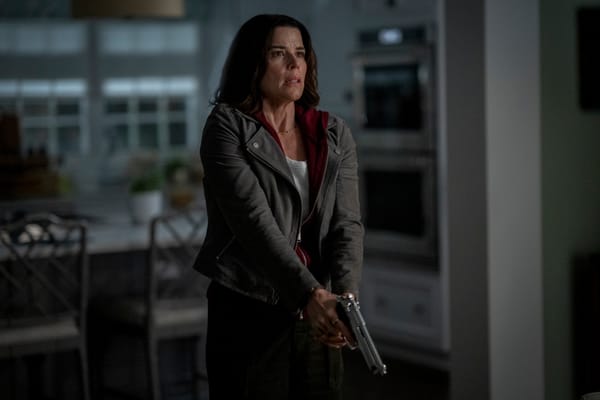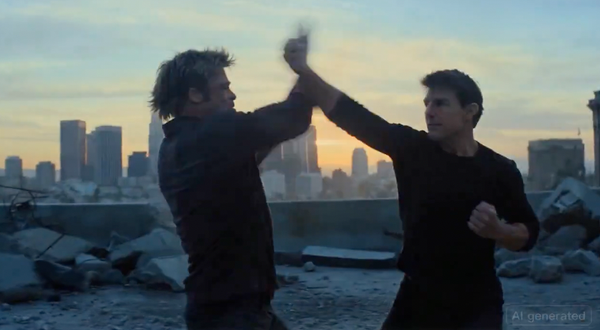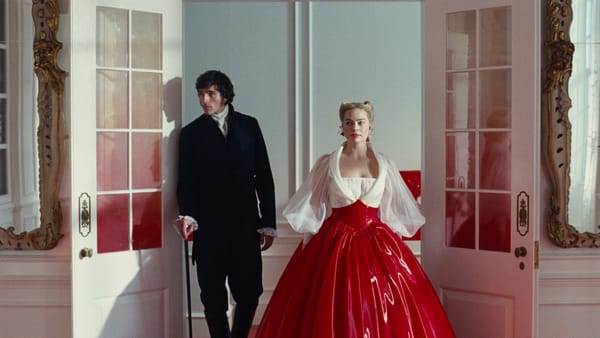Cannes 2025 Dispatch #3: The Newest Films by Spike Lee, Jafar Panahi, Julia Ducournau, and more (Plus: The Award Winners!)
Stephen David Miller closes his Cannes coverage with thoughts on this year's awards ceremony and reviews of Alpha, Highest 2 Lowest, It Was Just An Accident, Resurrection, and Sentimental Value.
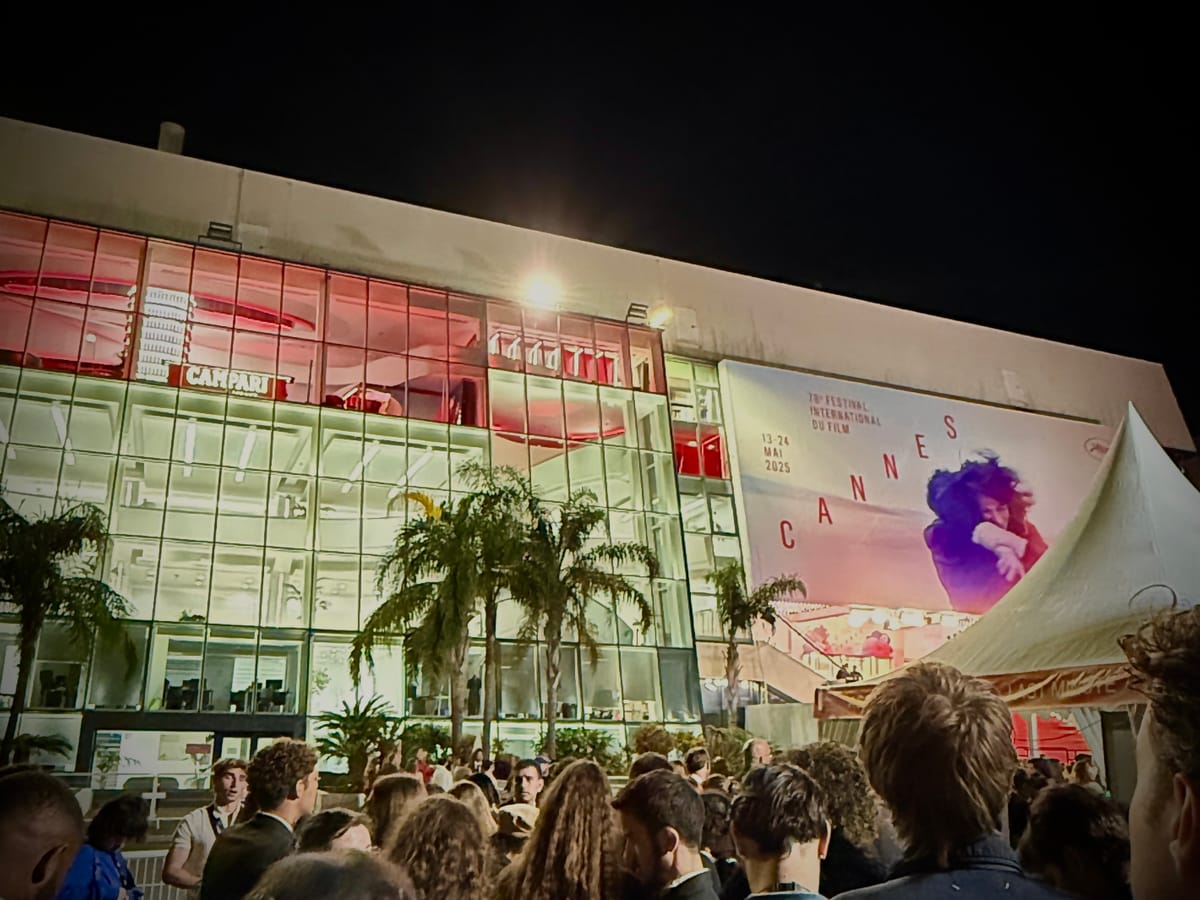
This is the third of three dispatches from the 2025 Cannes Film Festival by . You can also read part one and part two.
This past Saturday, a little after 2 in the morning, I left the last official premiere of this year’s festival: a midnight screening of Ethan Coen’s Honey Don’t! The offbeat Margaret Qualley comedy, I’ll admit, wasn’t much to write home about. Yet as I plodded back to my AirBnB in the twilight of my 36th birthday, I was ecstatic. Typically, I’d have an alarm going off in roughly four hours to prepare for one final rally: racing across town to catch a handful of titles I’d missed, before moving heaven and earth to get into the Closing Ceremony. But this year, I resolved to throw in the towel. Part of this was a matter of logistics. My skip-the-carpet strategy had not only worked, but kept me ahead of schedule! For the first time in my life, I didn’t need to catch up on any Competition titles. More importantly, though, my mindset had shifted. I’d seen plenty already; who really cared about chasing metrics? A relaxed afternoon on the town with my wife was just what the doctor ordered.
The next morning, I awoke to discover a massive power outage had taken out the city. Cell towers were down; credit card machines were inoperable; theaters were forcibly closed. As a lived reality for locals, it was surely a nightmare. But as a metaphor, it was so apt it felt overwritten. For five full hours, everyone from cinephile to celebrity was forced to simply stop. Stop refreshing for tickets. Stop running from screening to screening. Stop doing, and appreciate the city you’re in: the windy streets of the Suquet, the sun reflecting off the sea, the rich history that predates the festival by some 900 years. Stop fretting about what you won’t get to see, and take a moment to reflect on what you’ve already seen.
Well-documented ticketing woes notwithstanding, I still managed to catch a healthy number of premieres this year. 31, to be exact. That figure includes all 22 films in Competition, as well as all American films in the Midnight and Out Of Competition tracks (Mission: Impossible - The Final Reckoning, Highest 2 Lowest, Honey Don’t!). If I have one regret about this year’s scheduling constraints, it’s that they didn’t leave much room for the unknown unknowns—namely, non-competition international titles. If I find my way here again next year, I’ll be crossing my fingers for a slightly less stacked slate that leaves room for those hidden gems.
But it’s too early to be planning my 2026 agenda; we still have a festival to wrap up! Let’s dive in with reviews of five films you can look forward to in the States at some point in the future, before closing with a recap of the Closing Ceremony and awards.
Late Festival Round-Up: 5 Notable Premieres
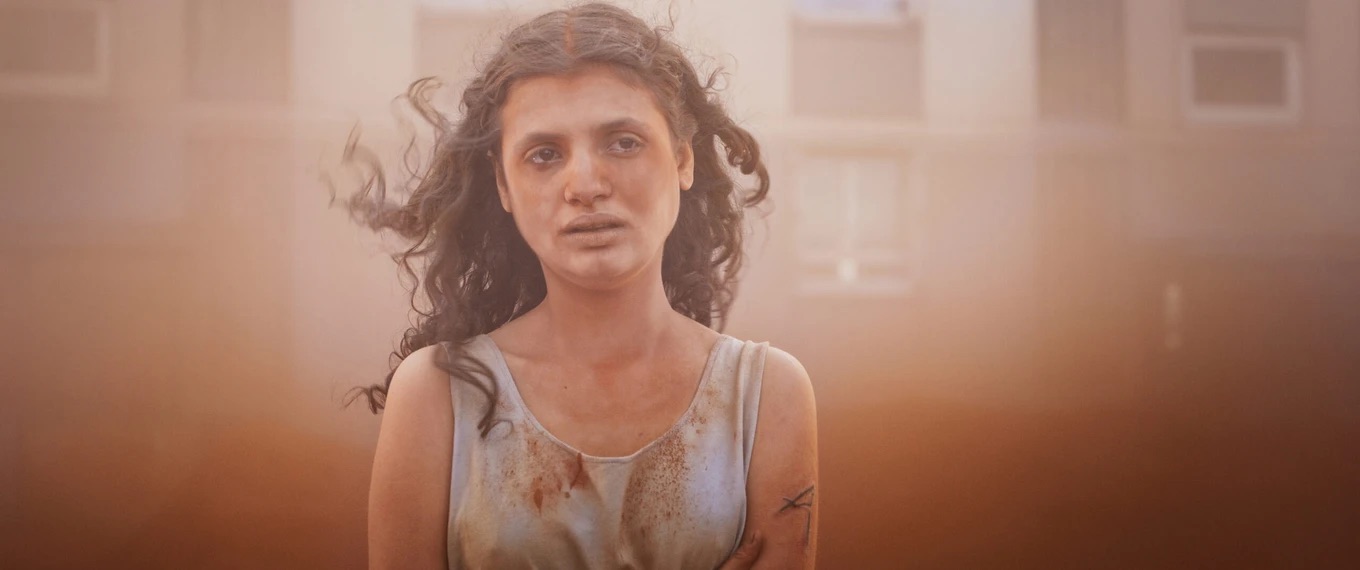
Alpha
The moment this year’s lineup was announced back in April, the internet was abuzz over Julia Ducournau’s latest directorial effort. Naturally, any former Palme d’Or winner returning to the Croisette is a reason to be excited, but Titane didn’t only take home the top prize; it proved that unabashed genre fare could be more than Midnight Screening fodder. Although I preferred the clarity of Raw to the high-octane chaos of Titane, it marked a major evolution in tone that neither I nor the Jury could ignore. It drove full throttle through a prestige wall so The Substance could ooze in behind it three years later, and that’s not even mentioning the coloring books it inspired! Whatever fresh new hell Alpha would unleash, I was excited to experience it.
While I haven’t done a rigorous analysis, word of mouth suggests that Alpha is among the biggest disappointments of the fest. Which is shocking to me, because I loved it, full stop. For my money it represents the ideal synthesis of Ducournau’s previous efforts: dazzling and hyperreal, bursting with style while retaining a legible emotional through-line. We open as Alpha (Mélissa Boros), a teenage girl, drunkenly gets a DIY tattoo at a party. When her mother (Golshifteh Farahani) discovers the jagged “A” on her shoulder, she’s beyond livid. She’s terrified that her daughter may have contracted The Virus—an unspecified illness which slowly eats away at its victims, with symptoms I’ll leave you to discover for yourself. Within days, a panic has swept across Alpha’s school, and her still-bloody scarlet letter has left her a pariah. What follows is a metaphor for the AIDS crisis as well as for the stigmatization of addiction, the latter of which is beautifully rendered in the character of Alpha’s uncle (Tahar Rahim). It may not be subtle, but it’s intensely felt and blown up to operatic proportions. Watching this projected on an IMAX screen, I was transfixed.
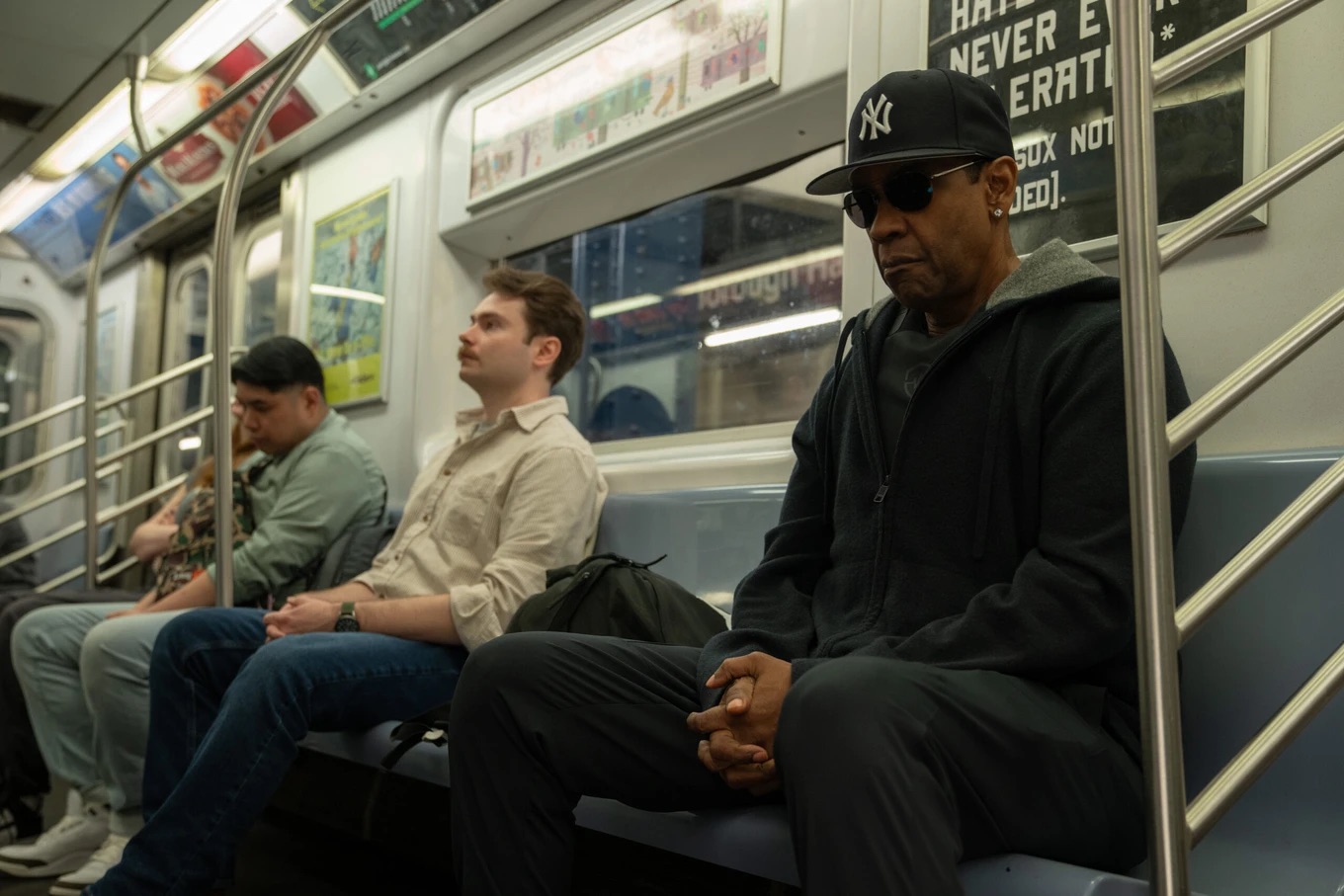
Highest 2 Lowest
After Spike Lee’s Oldboy remake was widely panned by critics, one might think he’d shy away from reimagining major works by international auteurs. But the provocateur thrives on doing the opposite of whatever “one might think,” so instead he’s back and quadrupling down—this time with a modern-day retelling of what I’d argue is the single greatest film by one of the greatest directors in history. Whether he succeeded, a remake of Akira Kurosawa’s High and Low was sure to spark a conversation.
Unfortunately, I’m mixed on the results. What makes High and Low my favorite Kurosawa is that it never goes where you expect it. It’s a twisty, energetic, finely tuned machine, a gentle family drama which morphs into a thrilling procedural only to stun you with a blistering societal critique. So on the one hand, Highest 2 Lowest gets it at least half right: the story about a record label mogul (Denzel Washington) who receives a call that his son has been abducted is certainly unpredictable. Watch the film’s first half, alongside the full Kurosawa classic that inspired it, and you still won’t have a clue where Spike is headed. But that’s partly because the first half is bewildering. For roughly an hour, Denzel and his costars (Ilfenesh Hadera as his wife, Jeffrey Wright as his confidante and driver) deliver overwrought dialogue which feels ripped from a soap opera. If they’re performing their morality play for the rafters, the composer is aiming for the theater across the street: The booming orchestral score not only underlines every story beat, it threatens to drown out the story entirely. Clearly this is all intentional; I just struggle to understand why. The source material Lee is homaging is propulsive from beginning to end, but his treatment seems deflated by design, like a parody of a 50’s melodrama. Eventually, he abandons the farce and gives us the goods, including one of the most thrilling action sequences in his filmography to date. Freed from the genre conceit, both Denzel and A$AP Rocky wind up giving killer performances—more evidence that the stilted first half was a choice. Still, it’s a long, strange ride to get there, dotted with abrupt stops whose meaning still eludes me. I would have preferred to take the express train.
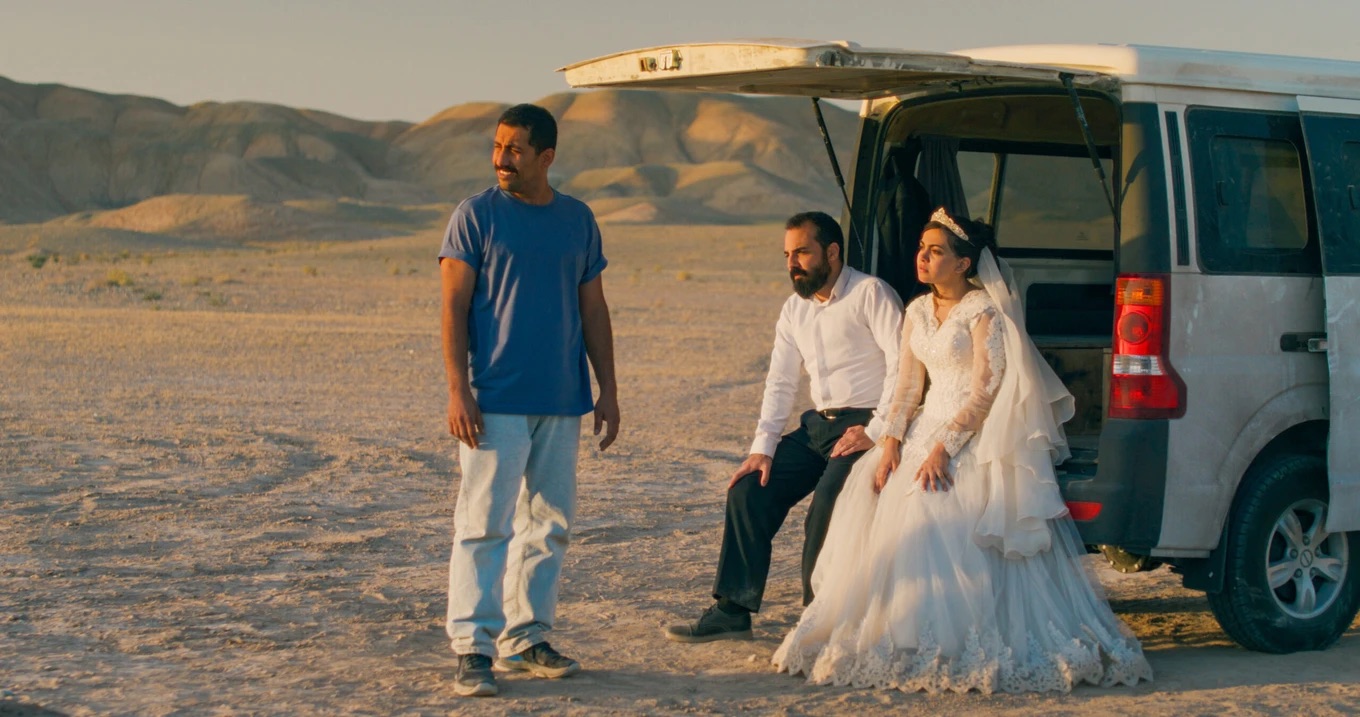
It Was Just An Accident
Jafar Panahi is a filmmaker I’ve admired for years, though that’s never been solely about the movies. Largely due to the Iranian government’s repeated attempts to censor and imprison him, his work is inextricable from the fact that he’s managed to make it. It isn’t clear how I’d feel about This Is Not A Film if it portrayed a fictional man in house arrest. Likewise, I doubt I’d be so enamored with Offside if it were filmed on a soundstage with an army of extras. I don’t mean this as a criticism; to me, it’s a quality that makes his work special. Like Close-Up before them, these films are blurry and metafictional by design. They encourage active engagement with the world.
One unique aspect of It Was Just An Accident is that I didn’t need any context to admire it. It’s riveting on cinematic grounds alone, and understanding the director’s history only deepens it. We open with Eghbal (Ebrahim Azizi) driving and accidentally hitting a dog. He then takes his car to a mechanic shop, where he’s spotted by a visibly shaken Vahid (Vahid Mobasseri). Our protagonist is shaken because he recognizes Eghbal; he spent years being interrogated by him in prison. A split-second decision makes him kidnap his supposed arch nemesis, but soon doubt starts creeping in: What if this man isn’t his abuser? What follows is, in many respects, a continuation of Panahi’s project of blurring fact and fiction. Only here, it’s the characters who are uncertain. As the story evolves, Eghbal becomes a Schrödinger’s Cat of sorts, and his shifting identity is entangled with the people around him. Is he a monster or an innocent man? Is Vahid a victim on the verge of avenging his trauma, or a killer losing his grip on reality? As has become a pattern with my favorite films of the festival this year, Accident flits between genres in a way that defies categorization. Is it a philosophical treatise, a psychological drama, a political protest, a comedy of errors? To reduce it to just one would fail to do it justice; there are many films swirling in this box before it’s open. When the questioning ended and the lights came up, I only knew one thing for certain: I’d just witnessed one of the most deserving prizewinners of the fest.
Resurrection
When the lights came up after Resurrection, I had a similar but less well-formed conviction. I knew I’d just seen a film that ought to win something; I just didn’t have a clue what it should be.
You could argue that Bi Gan’s sprawling, hypnotic epic is the most impressive thing I caught at Cannes. The loose anthology is told in six chapters, each of which function as a meditation on cinema, an exercise in a specific cinematic genre, and (per interviews given by Gan) a reflection on one of the five senses (plus the mind). There’s sight by way of a silent film featuring a Nosferatu-esque monster; hearing in a rain-soaked noir about a victim who’s been stabbed in the ear; taste in a fable about a man and a monk who appears from his discarded tooth; smell in a gentle 70s crime drama about a huckster and the mentee he trains; touch in a romantic thriller set in a post-apocalyptic metropolis; mind in a modern denouement. If that doesn’t make sense to you, you’re in good company—there’s little here by way of narrative coherence, and I struggled to keep up in my 8 a.m. screening. But in terms of visual style, it’s incomparable. Gan weaves through wildly dissonant filmmaking techniques with grace and total control, segueing between frame rates and perspectives with the fluidity of a dream. All of this comes together perfectly in the penultimate chapter, which sees Gan following up his legendary hourlong continuous shot with a long take that, despite being some 20 minutes shorter, is both more technically impressive and more emotionally impactful. As a standalone segment, it’s the best work of art I’ve experienced this year, festival or otherwise. Although the story that surrounds it is too convoluted for me to call it a masterpiece, Gan’s ambition and dexterity is undeniable. I suspect this will only grow in my estimation over time.
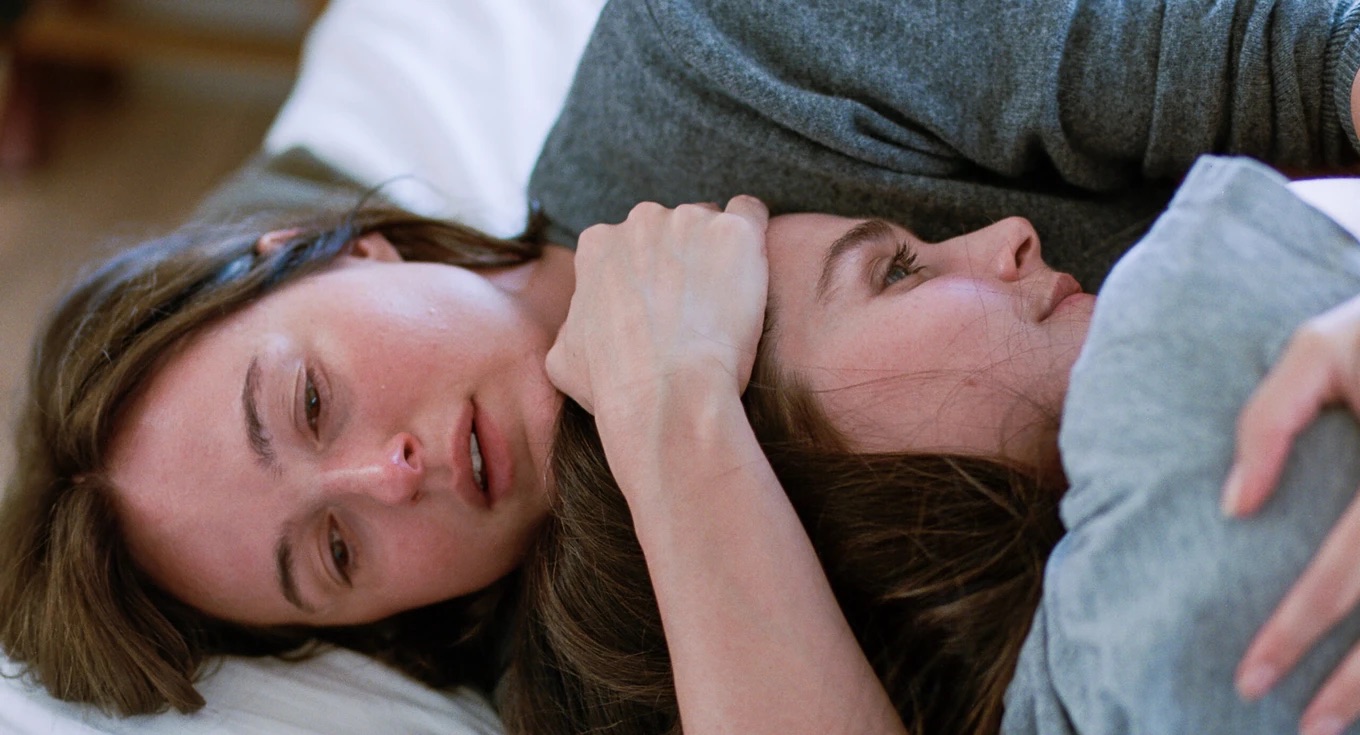
Sentimental Value
When people asked me about the lineup leading up to the festival, I would always give one unfounded prediction: Sentimental Value would be my favorite film in competition. It was an odd thing to be confident about, considering A) I knew nothing about the plot, and B) Joachim Trier’s The Worst Person In The World didn’t even crack my 2021 Top 10 list. Still, I had a hunch that whatever Trier, co-writer Eskil Vogt, and star Renate Reinsve were cooking up next, it would be right up my alley.
Clearly I know myself, even when I’m shooting in the dark, and I’m happy to report that Sentimental Value exceeded my absurd expectations. Although other films, including the two I reviewed just above this, might be more technically impressive achievements, Trier’s is the one that most captured my heart.
In a sense, it’s surprising that I had myself so pegged, because I’d based my prediction on some faulty assumptions. First, that this was an unambiguous Renate Reinsve star vehicle; second, that it would be stylistically similar to its predecessors. What I got instead was more sophisticated, more interesting, and ultimately more beautiful. Reinsve plays Norah, a stage and television actress who struggles with crippling anxiety. When her not-quite-estranged father, Gustav (Stellan Skarsgård) approaches her to star in his next film, she turns him down immediately. Instead, the acclaimed director casts an American actress (Elle Fanning) in her place. What follows is essentially a three-hander about depression and performance, the gap between what we can convey with words and what we truly feel inside, and the power of art to occasionally bridge that distance. This is soulful storytelling at its finest, and all three actors make it sing. Reinsve is wonderful as usual, and Fanning shows impressive range as well, but it’s Skarsgård who I really found transcendent. As a loving-in-principle father who isn’t sure how to put his intentions into practice, he carries an entire history behind his eyes. Gustav hopes, through film, to illuminate that unspoken history. God bless Joachim Trier for his ability to do the same.
Closing Ceremony: Recapping the Award Winners
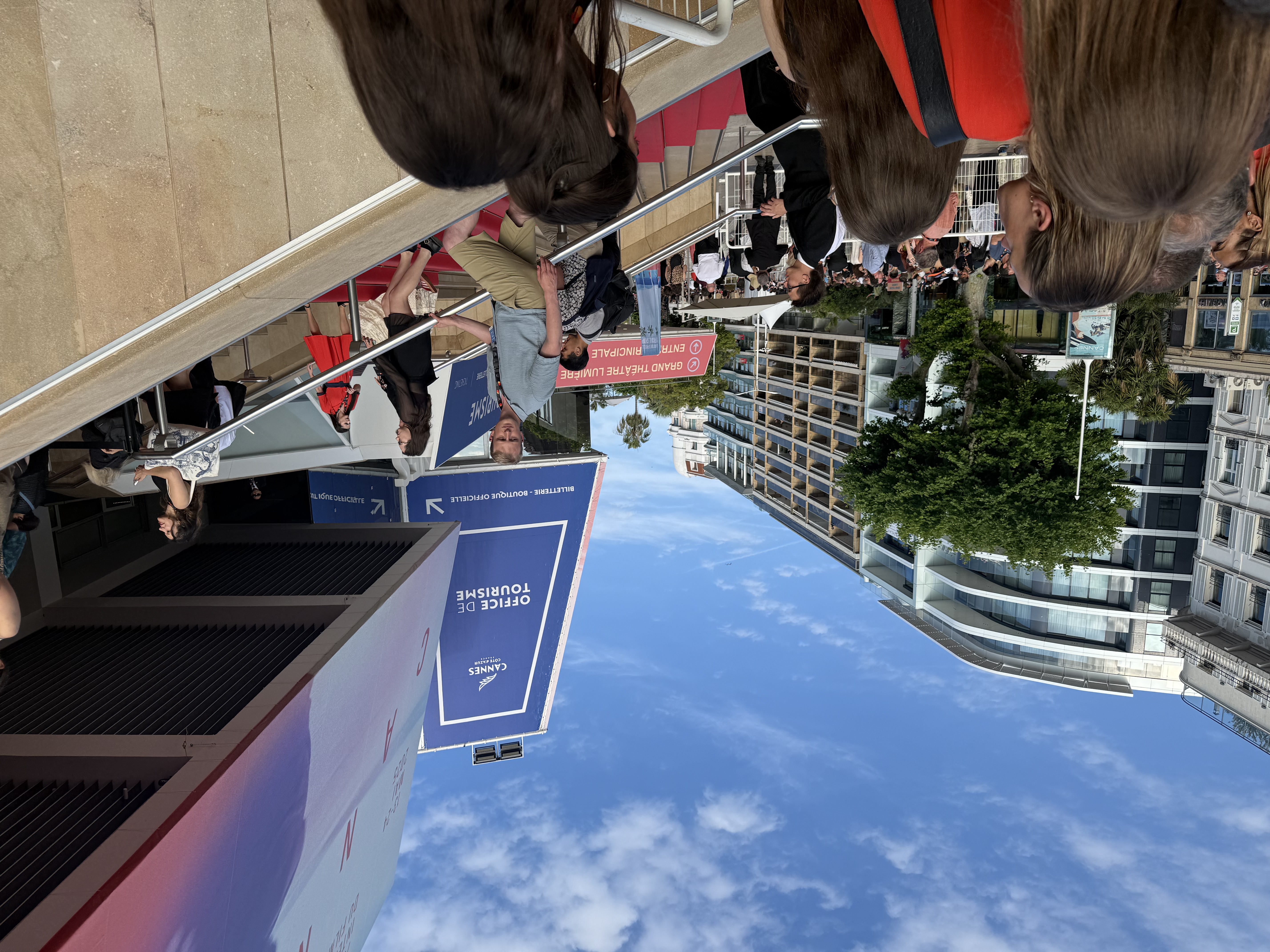
Every year, on the final day of the fest, a star-studded crew gathers at the Grand Theatre Lumière to celebrate the best of the Official Competition. This is generally the most difficult invitation to nab in the fest, and previous ceremony experiences have involved me throwing on a tux, begging for tickets, and making a sweaty sprint down the carpet moments before security closes its doors. This time I instead made my way to the overflow theater next door, surrounded by people in shorts. As I said before, there’s more than one way you can Cannes!
One thing that makes it hard to guess the winners is the Jury and its President change with every year. This time around, the voting body was headed up by Juliette Binoche. As is always the case, questions abounded. Is it possible to divine her tastes based on her onscreen output, and if so, will she act on those instincts? This is, of course, a totally futile endeavor. American indie darling Greta Gerwig steered into the skid and awarded the Palme d’Or to an American indie (Anora). On the flip-side, the most sex-averse filmmaker alive, Steven Spielberg, gave the gold to one of the horniest movies ever made (Blue is the Warmest Color). What even was the horniest film in competition this year? I puzzled over this, and whether I should include it in David Chen’s prestigious newsletter, while I was seated for the festivities to begin.
The Awards
- The Camera d’Or is the one major award granted in this ceremony which isn’t restricted to Competition films. Instead, it cuts across all festival tracks to identify the most promising film by a first time director. This year, a special mention was given to Nigerian director Akinola Davies Jr’s Un Certain Regard premiere, My Father’s Shadow. The winner was then announced to be Hasan Hadi for his Directors’ Fortnight debut, The President’s Cake—the first ever Iraqi film to be awarded at Cannes. Sadly, my schedule hadn’t permitted me to catch either, though buzz for Akinola Davies Jr had been particularly strong.
- Dieudo Hamadi then announced a Special Jury Prize for Bi Gan’s Resurrection. Although not officially a required part of the Awards Slate (and therefore my prediction bracket), it’s common for a Special prize to be given to something the Jury sees great value in but isn’t sure how to award it. I was pulling for Gan to win Best Director instead, but this award does still match my intuitions: it’s an incredible accomplishment which is just too narratively unfocused to win one of the very top prizes.
- Actress Rossy de Palma was brought in to present the award for Best Actor. She threw it to director Hong Sang-Soo, who in turn announced Wagner Moura for The Secret Agent. I was relatively cool on Kleber Mendoça Filho’s 70s crime drama, but I’ll circle back to that later. Whatever my qualms about the film he’s in, there’s no denying that Moura is brilliant in the role, and I love to see the rising Hollywood star receive accolades for movie so specifically linked to Brazilian history. He was my runner up pick for the prize.
- After an unexpected detour that saw John C. Reilly treat a stone-faced audience to a hearty rendition of “La Vie En Rose,” journalist Leïla Slimani then awarded the Best Screenplay prize to the Dardenne brothers for Young Mothers. I’m a sucker for the Dardennes’ brand of intense social realism, and was a moderate fan of their latest drama about a group of teenage mothers. But their films often strike me more as bullet-point concepts than capital-S Screenplays, and by splitting the drama across 4 different stories, this one felt especially thin. I could understand awarding the ensemble of actresses a la last year’s Emilia Pérez pick, but this particular win is a head scratcher for me.
- Da’Vine Joy Randolph then came out to introduce the Jury Prize, which is essentially the Bronze medal of the fest. Actress Alba Rohrwacher awarded this honor to Oliver Laxe’s Sirat. After Laxe gave his speech, the jury then announced a second, ex-aequo (tie) Jury Prize for Mascha Schilinski’s Sound of Falling. I highlighted both in my first dispatch for a reason: These were two of my most pleasant surprises of the festival. Laxe’s psychedelic mood piece strikes me as the more left field pick, but even Schilinski’s drama is bold for a prize that often leans into crowd-pleasing fare. Turns out one of our greatest living actresses also has great taste as a Jury President!
- Legendary director Claude Lelouche then introduced the prize for Best Director. Payal Kapadia announced the winner, Kleber Mendonça Filho, who returned to the stage once again for The Secret Agent. As I mentioned above, I’m going against the grain by being mildly disappointed in this film. It’s gorgeously shot and conceptually interesting; set amid similar political turmoil as I’m Still Here, with a focus on the resistance. But in a year when I needed films to shake something deep inside me, this was too lackadaisically paced for my liking. Despite generally being a fan of slow cinema, I feel it only suits stories where quiet meditation or listlessness is essential to the theme. Here, I failed to see a “why” behind the lack of narrative momentum. I’m happy to see a filmmaker as talented as Filho be recognized by the Jury, but I stand by my Bi Gan suggestion.
- Actor Daniel Auteuil then gave a speech in French I couldn’t understand to introduce the award for Best Actress. Halle Berry named the winner as Nadia Melliti, star of the queer French-Algerian drama The Little Sister. In previous installments I’ve mentioned how stacked this lineup is, and The Little Sister is an excellent example of that fact. It’s a heartfelt coming-of-age story, and it’s exactly the sort of thing I’d have been racing to share with you in a typical year. I’m sad that Jennifer Lawrence didn’t make the cut: Her bare-knuckle performance in Die, My Love was far and away my favorite of the Competition slate. But Melliti was my runner-up so, yet again, I can’t complain.
- Coralie Fargeat came on stage to present the second most prestigious award of the evening, the Grand Prix. Famously normal guy Jeremy Strong then stood and awarded the prize to Joachim Trier’s Sentimental Value. I was pulling for Trier to take home the gold this year, and my review above clearly expresses why. There’s often a battle between “head” and “heart” when it comes to these festival prizes, and this year I went with my heart. Trier, for his part, also led with his heart in his speech, praising the power of international cinema to bridge cultural divisions and act “as an alternative language for unification.” I’m delighted to see his wonderful film receive its flowers.
- At last, it was time for the main event. Cate Blanchett walked onto the stage and delivered a (surprisingly authentic sounding, to untrained my ears) bilingual speech before throwing it to Binoche to name the Palme d’Or. As virtually everyone in the audience had already deduced, the award went to Jafar Panahi’s It Was Just An Accident. Panahi’s film was the “head” to Trier’s “heart” in my personal dilemma. In hindsight, I think this is the stronger and more well-rounded pick. After last year’s Seed of the Sacred Fig was relegated off the podium with a Special Jury Prize, Panahi’s win feels not only extremely deserved but like an act of karmic retribution. He and the cast and crew were visibly emotional, and it was a joy to celebrate their film with a crowd. Even in the overflow theater, the energy was palpable: one last communal experience before packing our bags and heading home.
Finally, because it’s physically impossible to cover everything in these dispatches, I’m linking to a Letterboxd list of every premiere I caught at Cannes. Feel free to reach out directly if you’re curious about any of these, and thank you, as always, for reading!
Stephen David Miller is the co-host of The Spoiler Warning podcast.
